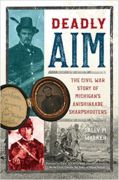
Sibert Award winner Sally M. Walker crafts an engaging, middle-grade nonfiction narrative of the American Indian soldiers who bravely fought in the Civil War.
Material appropriate for intermediate age groups

Sibert Award winner Sally M. Walker crafts an engaging, middle-grade nonfiction narrative of the American Indian soldiers who bravely fought in the Civil War.
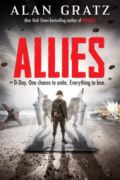
It is June 6, 1944, D-Day, and Dee Carpenter (true name Dietrich Zimmermann), an underage private in the United States Army, is headed for Omaha Beach, seeking revenge for his uncle, who was arrested by Nazis when Dee was a little boy; meanwhile, Samira Zidano, an 11-year old French-Algerian girl is looking for the French resistance, desperate to deliver the message that the invasion is about to begin, and get their help in freeing her mother–this is the most important day of the twentieth century, and both children want to fight, and survive.
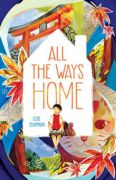
This is a book about what home means to us―and that there are many different correct answers.
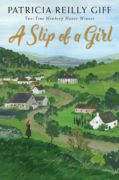
For Anna, the family farm has always been home… But now, things are changing. Anna’s mother has died, and her older siblings have emigrated, leaving Anna and her father to care for a young sister with special needs. And though their family has worked this land for years, they’re in danger of losing it as poor crop yields leave them without money to pay their rent. When a violent encounter with the Lord’s rent collector results in Anna and her father’s arrest, all seems lost. But Anna sees her chance and bolts from the jailhouse. On the run, Anna must rely on her own inner strength to protect her sister–and try to find a way to save her family. Written in verse, A Slip of a Girl is a poignant story of adversity, resilience, and self-determination by a master of historical fiction, painting a haunting history of the tensions in the Irish countryside of the early 1890s, and the aftermath of the Great Famine.
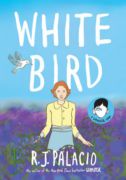
In R. J. Palacio’s bestselling collection of stories Auggie & Me, which expands on characters in Wonder, readers were introduced to Julian’s grandmother, Grandmère. Here, Palacio makes her graphic novel debut with Grandmère’s heartrending story: how she, a young Jewish girl, was hidden by a family in a Nazi-occupied French village during World War II; how the boy she and her classmates once shunned became her savior and best friend. Sara’s harrowing experience movingly demonstrates the power of kindness to change hearts, build bridges, and even save lives. As Grandmère tells Julian, “It always takes courage to be kind, but in those days, such kindness could cost you everything.” With poignant symbolism and gorgeous artwork that brings Sara’s story out of the past and cements it firmly in this moment in history, White Bird is sure to captivate anyone who was moved by the book Wonder or the blockbuster movie adaptation and its message.
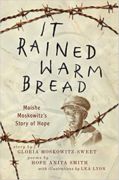
A fictionalized account of the experiences of a Polish Jew, Moishe, who with his parents, brother, and sister, struggles to survive the Nazi invasion and Holocaust.
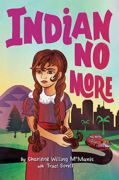
Regina Petit’s family has always been Umpqua, and living on the Grand Ronde reservation is all 10-year-old Regina has ever known. Her biggest worry is that Sasquatch may actually exist out in the forest. But when the federal government signs a bill into law that says Regina’s tribe no longer exists, Regina becomes “Indian no more” overnight–even though she was given a number by the Bureau of Indian Affairs that counted her as Indian, even though she lives with her tribe and practices tribal customs, and even though her ancestors were Indian for countless generations. With no good jobs available in Oregon, Regina’s father signs the family up for the Indian Relocation program and moves them to Los Angeles. Regina finds a whole new world in her neighborhood on 58th Place. She’s never met kids of other races, and they’ve never met a real Indian. For the first time in her life, Regina comes face to face with the viciousness of racism, personally and toward her new friends. Meanwhile, her father believes that if he works hard, their family will be treated just like white Americans. But it’s not that easy. It’s 1957 during the Civil Rights Era. The family struggles without their tribal community and land. At least Regina has her grandmother, Chich, and her stories. At least they are all together.
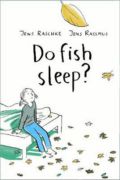
Ten-year-old Jette wrestles with the death of her younger brother, Emil, at age six, recalling special times they had together, his long-term illness, and his funeral, as well as her parents’ grief.
Featured in WOW Review Volume XII, Issue 3
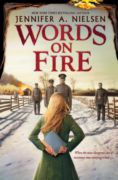
In 1893 twelve-year-old Audra lives on a farm in Lithuania, and tries to avoid the Cossack soldiers who enforce the Russian decrees that ban Lithuanian books, religion, culture, and even the language; but when the soldiers invade the farm Audra is the only one who escapes and, unsure of what has happened to her parents, she embarks on a dangerous journey, carrying the smuggled Lithuanian books that fuel the growing resistance movement, unsure of who to trust, but risking her life and freedom for her country.
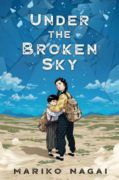
When Soviet troops invade Japanese-occupied Manchuria during the last days of World War II, 12-year-old Natsu Kimura must care for her younger sister as they struggle to survive and return to Japan.
Under the Broken Sky is a WOW Recommends: Book of the Month for April 2020.